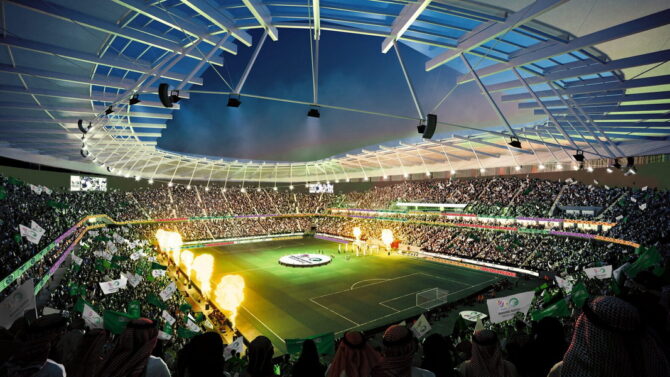Saudi Arabia will host the 2034 FIFA World Cup, unveiling plans for 11 new stadiums, revamped venues, and futuristic cities like Neom to showcase its ambition on the global stage.
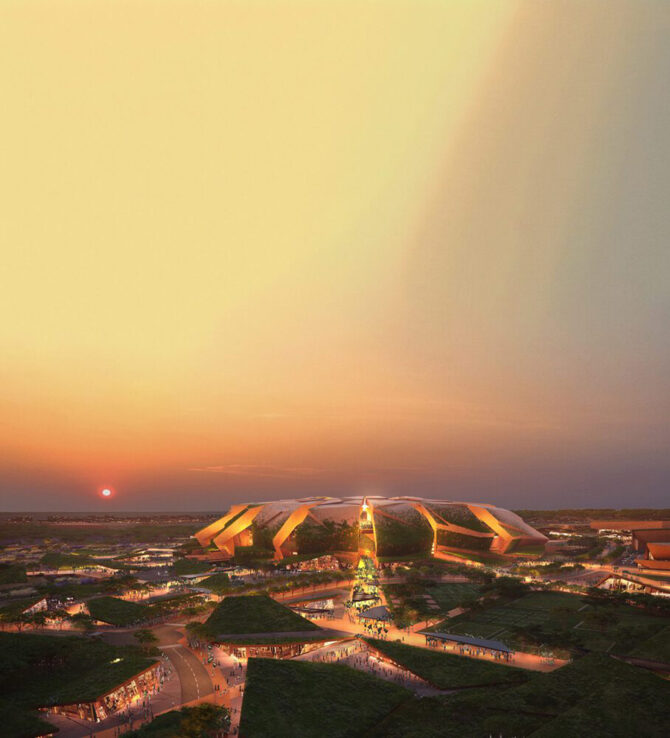
Saudi Arabia has officially been chosen to host the 2034 FIFA World Cup, a monumental step for the Kingdom as it continues to expand its global influence in sports and infrastructure. The announcement, made on December 11, 2024, solidified Saudi Arabia’s growing role in the international sports community. With ambitious plans, including the construction of 11 new stadiums, renovations of four existing venues, and innovative projects like Neom, this tournament is set to redefine what a modern World Cup can look like.

A Closer Look at Saudi Arabia’s World Cup Bid
The decision to award Saudi Arabia the 2034 FIFA World Cup was hardly a surprise. Unlike previous competitive bidding processes, Saudi Arabia emerged as the sole bidder for the tournament. The streamlined process mirrored FIFA’s 2030 World Cup decision, where Spain, Portugal, and Morocco were jointly selected as hosts.

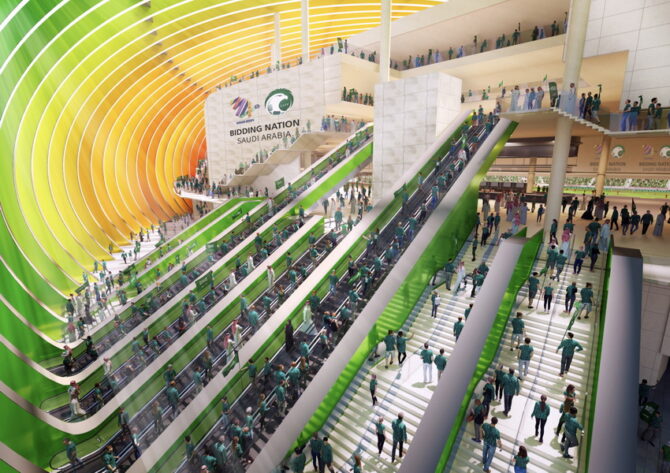
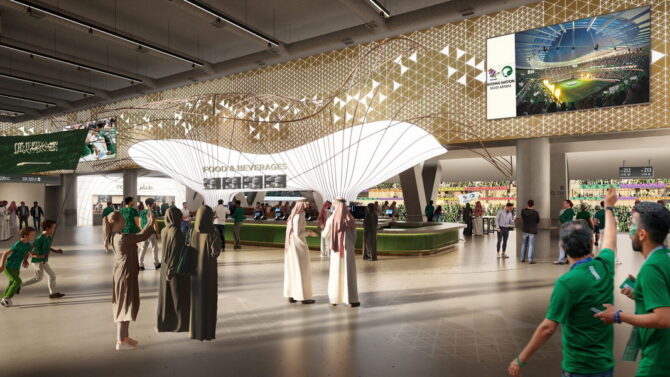
The Saudi bid highlights its vision for a transformative World Cup experience. Key elements of the proposal include:
- 11 Brand-New Stadiums: Cutting-edge venues are planned to accommodate massive audiences with state-of-the-art technology.
- 4 Refurbished Venues: Older stadiums in Riyadh, Jeddah, and other cities will be upgraded to meet FIFA standards.
- 134 Training Sites: These facilities will include 73 newly built centers to support teams from across the globe.
- Futuristic Host Cities: Major cities like Riyadh, Jeddah, Al Khobar, and Abha will play a significant role. Notably, Neom—a yet-to-be-built 170-kilometer-long linear city along the Red Sea coast—will feature prominently.
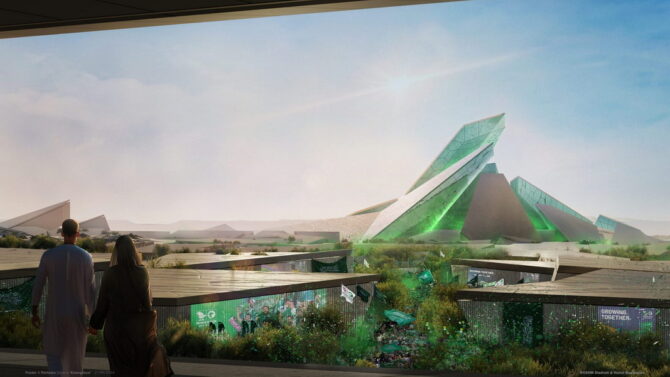
This level of investment in infrastructure is unprecedented and reflects Saudi Arabia’s determination to host one of the most spectacular World Cups in history.
Why Saudi Arabia?
Saudi Arabia’s successful bid aligns with its long-term strategy, Vision 2030, a national initiative aimed at reducing dependency on oil by promoting sectors like tourism, entertainment, and sports. Hosting a global event such as the FIFA World Cup serves as a cornerstone of this vision.
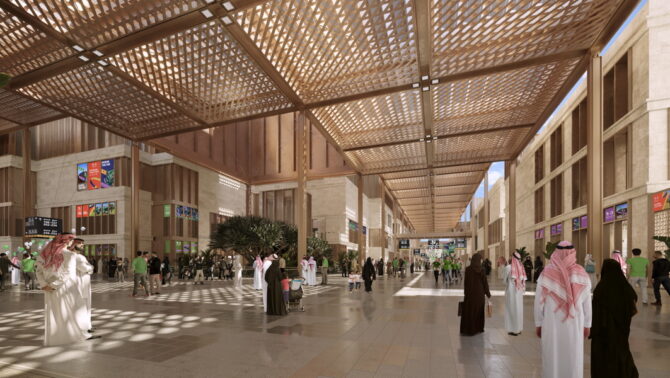
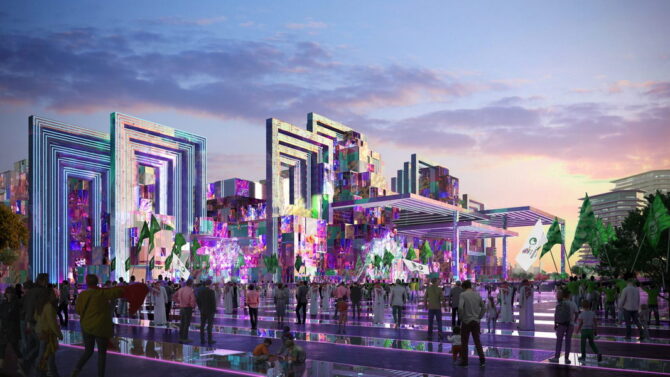
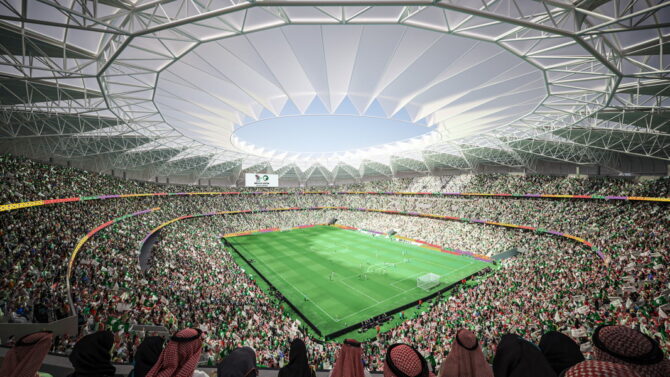
The Kingdom has been strategically increasing its involvement in global sports. Notable efforts include:
- The acquisition of top players and hosting major events like the Saudi Pro League.
- Successful bids for other international tournaments, such as the 2027 AFC Asian Cup.

Saudi Arabia’s geographic location also makes it a favorable choice. Situated between Europe, Asia, and Africa, it offers shorter travel distances for fans and teams alike.
Neom: The City of the Future
Perhaps the most exciting part of the bid is Neom, the proposed linear city stretching 170 kilometers along the Red Sea coast. Envisioned as a sustainable, high-tech urban development, Neom aims to revolutionize modern living. As a potential host city, it will feature smart infrastructure, green energy systems, and luxury accommodations—a futuristic spectacle that promises to captivate global audiences.
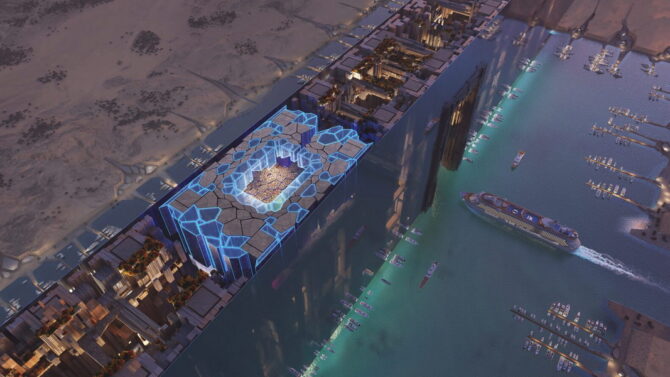
Global Reaction
The global sports community has had mixed reactions to the announcement. While many praise Saudi Arabia’s commitment to innovation and infrastructure, others have raised concerns about human rights issues and environmental sustainability. Critics argue that FIFA must ensure the tournament aligns with its sustainability and ethical goals.
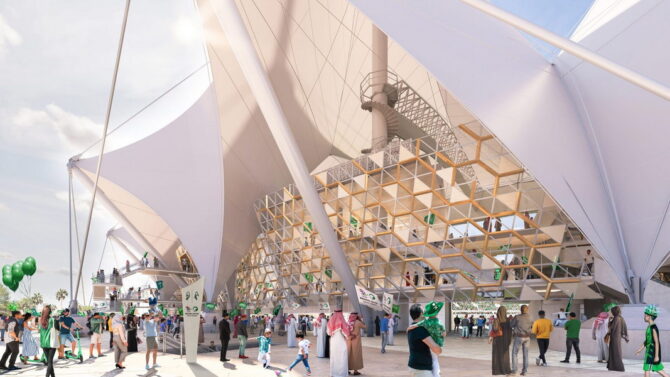
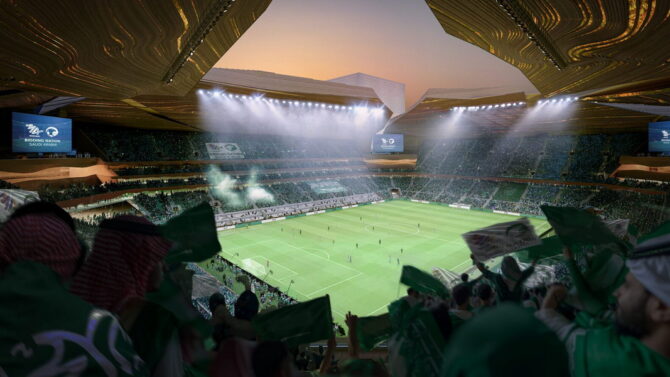
Nevertheless, supporters view the 2034 World Cup as a game-changing opportunity for Saudi Arabia to foster regional unity, attract tourism, and establish itself as a powerhouse in global sports.
What’s Next?
With the 2034 tournament nearly a decade away, Saudi Arabia has ample time to deliver on its ambitious promises. The Kingdom will need to balance the rapid construction of infrastructure with FIFA’s strict standards for quality, sustainability, and accessibility.
